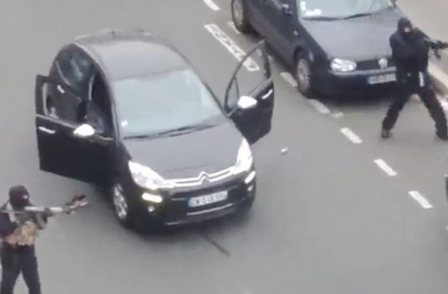
The man who videoed a the murder of a police officer during the Charlie Hebdo massacre now regrets sharing the footage online, saying he never expected it to be broadcast so widely.
Engineer Jordi Mir told The Associated Press he posted the video out of fear and a "stupid reflex" fostered by years on social media.
"I was completely panicked," he said in an exclusive interview across from the Parisian boulevard where the officer was shot to death by terrorists on Wednesday.
You've reached your limit of free articles
Please register now to continue reading
Already registered? Log in here
